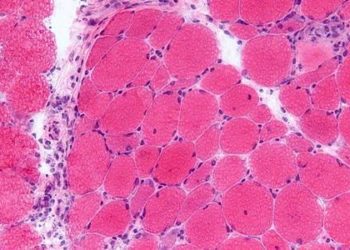Eli Lilly: Kisunla was shown to reduce symptoms and slow disease progression in adults with early symptomatic Alzheimer’s disease.
- Compared to the placebo, patients treated with Kisunla had a 35% slower cognitive and functional decline at 18 months of treatment and a 39% reduced risk of disease progression to the next clinical stage.
- Amyloid-related imaging abnormalities, which include swelling or bleeding in the brain, occurred in 24% of patients in the Kisunla group compared to 2.1% in the placebo group.
The Latest
In the TRAILbLAZER-ALZ 2 Phase 3 study, 1736 adults with mild cognitive impairment (MCI) or with the mild dementia stage of Alzheimer’s disease (AD) with confirmed amyloid pathology were randomized to placebo or once-monthly Kisunla injection for 72 weeks. Compared to the placebo, patients treated with Kisunla had a 35% less functional decline at 18 months of the study and a 39% reduced risk of disease progression to the next clinical stage. Treatment with Kisunla was associated with adverse events, including amyloid-related imaging abnormalities in 24% of patients in the Kisunla group compared to 2.1% in the placebo group.
Physician’s Perspective
Alzheimer’s disease (AD) is the most common cause of dementia and can be a debilitating illness with high mortality and morbidity. Although the precise pathophysiology is still unknown, one of the hallmarks of AD pathology is an increased level of amyloid protein, resulting in the deposition of amyloid plaques in neurons. However, previous therapeutic strategies targeting amyloid have not yielded clinically significant advances in slowing disease progression. Therefore, the development of additional therapeutic strategies is necessary.
Molecular Target of Therapy
Kisunla, or donanemab-abzt, is a monoclonal antibody that targets amyloid protein aggregates. By binding to B-amyloid, donanemab targets amyloid plaques for phagocytosis by microglial cells, our brain’s immune cells. Removal of amyloid plaques is thought to slow down the amyloid-induced death of our brain cells, leading to a reduction in memory and thinking problems associated with Alzheimer’s disease.
Company History
Eli Lilly is an American pharmaceutical company founded in 1876 that produces many widely used medications such as the anti-depressants Cymbalta and Prozac, and anti-psychotics like Zyprexa. Currently, the competing drug with a similar mechanism of action is Eisai and Biogen’s Leqembi, which also gained DFA approval alongside Kisunla.
Further reading: https://clinicaltrials.gov/study/NCT04437511
©2024 2 Minute Medicine, Inc. All rights reserved. No works may be reproduced without expressed written consent from 2 Minute Medicine, Inc. Inquire about licensing here. No article should be construed as medical advice and is not intended as such by the authors or by 2 Minute Medicine, Inc.







